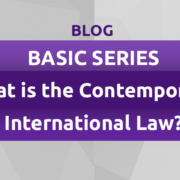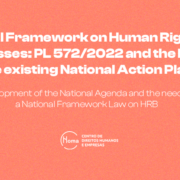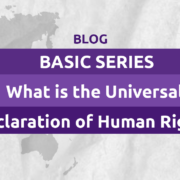Current Brazilian framework of public policies on Human Rights and Business: Decree No. 9571/18
Written by: Ana Laura Figueiredo
Following up on the series on the National Agenda, in this post we will address the publication of Decree nº 9,571, which occurred on November 21, 2018, its main points and how it was received by civil society.
Context of publication
Decree No. 9,571/18 establishes National Guidelines on Business and Human Rights, and it should be noted that during the period of its elaboration and publication, the Brazilian political scenario was positioned against the actions of social movements, questioned activists and even academic centers. In this way, it is evident that the participation and opinion of society were not priorities for the government and, for this reason, this type of elaboration of public policy is called “top-down”. In other words, the established guidelines reproduce the difference in power between the parties involved and their elaboration fails in the democratic and public aspect.
Main points addressed and criticism of the decree
The content follows the problematization of the absence of popular participation, since the lack of transparency in the process results in a document based on the Guiding Principles and in the principle of voluntarism. The Decree ignores the issues already discussed and agreed upon by the Working Group on Business and Human Rights, which was created by the Office of the National Ombudsman in 2014, and also during the 1st Public Hearing on the topic, which took place in late 2017. What we can see is that the National Agenda advanced in the negotiations and always sought a democratic interaction between the State and civil society in the discussions, a position defined as the main guideline on issues involving human rights by the National Human Rights Program (PNDH-3), since 2009, through Decree No. 7.037.
On the other hand, human rights seem to be conditioned to business logic due to the lack of clarity in the text regarding their primacy, especially when terms like ‘impact’ and ‘abuse’ are adopted to address violations committed by companies. Besides the problems pointed out, one of the articles of the Decree (art. 1, §2 and §3) determines the voluntary character of the guidelines and adopts a compensatory measure, which is the distribution of stamps to companies that adhere to the terms. The relationship between State and companies is not very clear, so much so that agreements are adopted in the solution of conflicts, which leaves aside important aspects such as access to justice and gender and race specificities.
Another point that generates a lot of criticism within the agenda is the shifting of the burden of proof, a legal instrument that determines that evidence must be provided by those who claim to have had their rights violated; in this case, the affected people should prove the violations they suffered. The due diligence mechanism, which has already had its controversies explained in another post, was also incorporated in the guidelines, but without the necessary and effective redefinition to encompass the production chains, thus the self-monitoring of companies reinforces this weakness.
Civil Society Positioning
The main concern of civil society, which is against the decree and was disregarded, is the transformation of these problematic guidelines into a National Action Plan by the Follow-up and Monitoring Committee of the National Guidelines on Business and Human Rights (Comitê de Acompanhamento e Monitoramento das Diretrizes Nacionais sobre Empresas e Direitos Humanos) which, according to article 17, item I of the document, is responsible for elaborating annual action plans on the agenda. This Committee is criticized for treating Brazilian civil society homogeneously as the ‘third sector’, without differentiating between those affected, academic institutions, private sector and unions, equating interests that should have different standards.
In the next post we will talk about Resolution No. 5/2020 of the National Human Rights Council (CNDH), published as a response to the decree’s guidelines that were carried out without transparency and ignored what had already been discussed.
Read our document with a complete analysis of Decree No. 9,571/18:
|
Glossary
|












Leave a Reply
Want to join the discussion?Feel free to contribute!